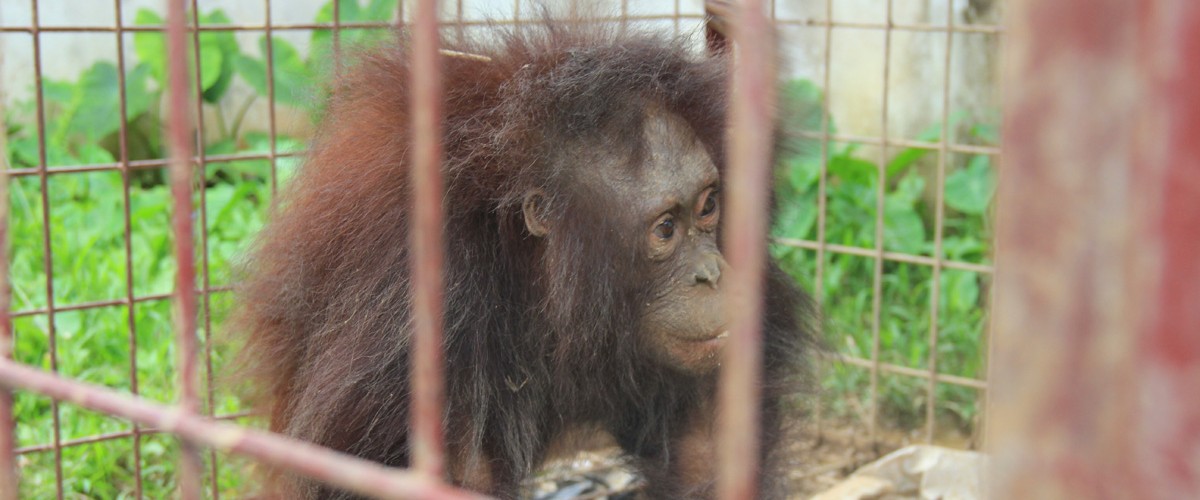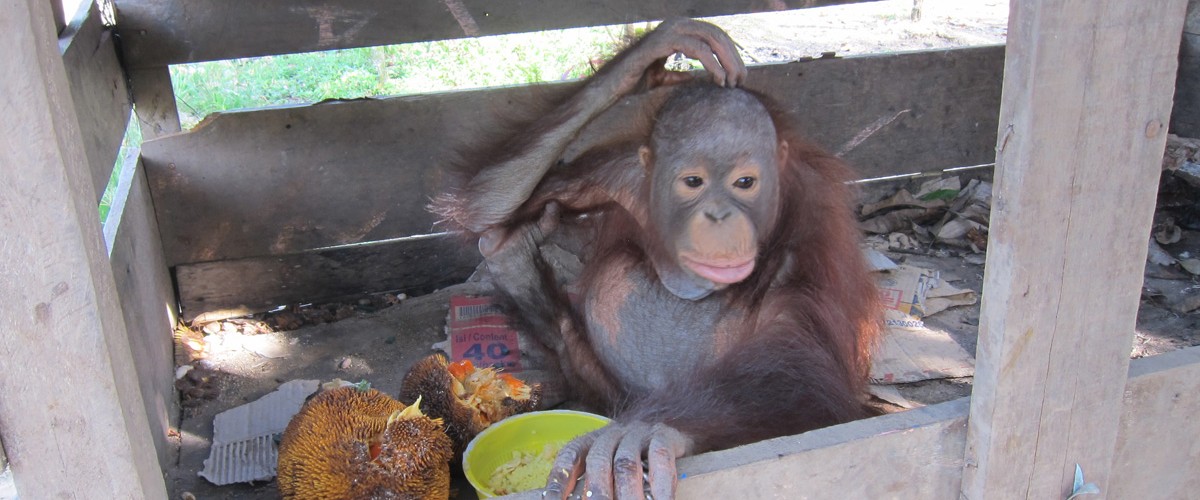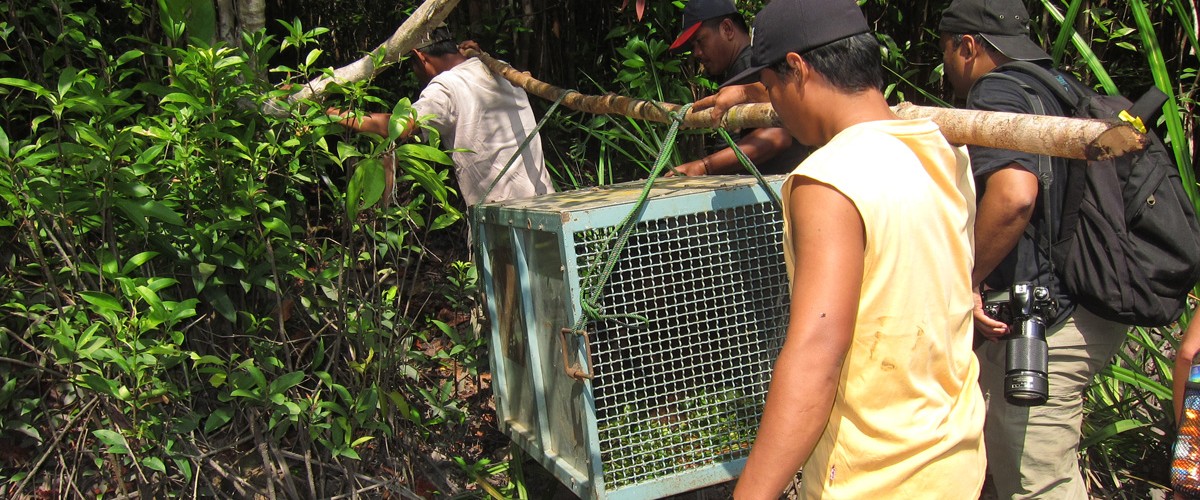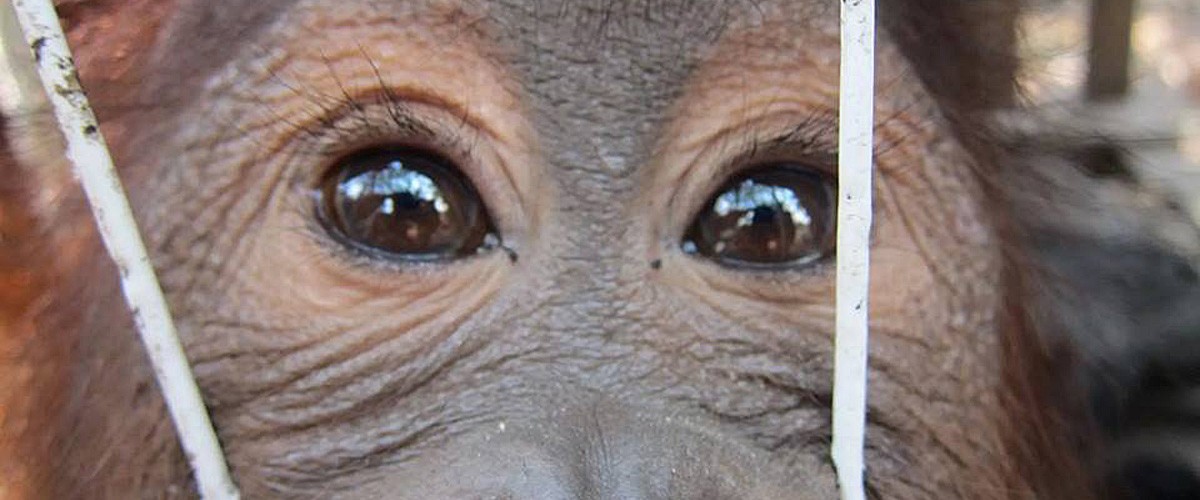By Terri Breeden, GPOCP Program Director
Once again, we have had a busy month full of energy and excitement here in West Kalimantan. Our biggest news is that we moved offices! After six years at our previous location it was deemed time to move. I am happy to report that while I was somewhat dreading the stress of moving (as we all do!) it actually went very smoothly. Our team worked together to get everything done. In less than a week, we have already moved everything, cleaned, set up and organized our working space, connected the internet and city water, and upgraded our electricity!
 |
|
GPOCP staff setting up our sign at our new office in Ketapang.
|
This week we also held our Bornean Orangutan Caring Scholarship competition. This program, supported by the Orang Utan Republik Foundation, provides a four year scholarship to attend Tanjungpura University (UNTAN) in Pontianak, to study orangutans and their habitat. The mission of this foundation is to create a generation of university trained youth who are prepared to pursue careers in the conservation field. This year we had 27 applicants. Fourteen of those applicants made the first round. Each student had to give a short presentation and then participate in a question and answer session with our panel of judges. The judges included Ir. Evy Wardenaar, from the Forestry Department at UNTAN, Dr. Wahyono, from a local community college, Bapak Akhdiyatul from the local trade school, and GPOCP’s Environmental Education Manager, Mariamah Achmad. GPOCP and Orang Utan Republik Foundation are proud to present the next class of scholarship recipients and the next generation of conservationists in Indonesia. Be sure to read our June newsletter where we highlight each scholarship recipient.
 |
|
The judges for the BOCS selection, Akhidiyatul, Mariamah, Evy, and Wahyono. GPOCP appreciates their hard work making this difficult decision.
|
This month we also spent a week on an Environmental Expedition to the villages of Natai Kuini and Air Hitam in West Kalimantan. These villages are over 12 hours away from our office and rarely receive information about the significance of conservation. During this five day event our education team reached nearly 400 people educating them on orangutans and the importance of forests and habitat conservation. In Air Hitam, this was the first time an NGO has visited them. They were very excited to learn about GPOCP and discussed some of their problems. Over the last few years, Air Hitam has experienced many landscape changes. Most of the surrounding area has now been converted to oil palm plantations. The nearby processing plant has turned the river into a toxic mess. Due to the decline in water quality, this village now has an influx of black flies which are quite a nuisance. But in Natai Kuini, our team experienced a different story. This area was severely burned during the 2015 fire season and to this day very few trees remain. The peat land has already been drained and now farmers are opening the land to create large fish ponds. These changes are creating conflicts with the orangutans because those few remaining trees are now located in small isolated islands.
 |
|
The landscape in Natai Kuini was burned in 2015 and is now being opened by farmers to create fish ponds.
|
Our investigation team has also been very busy monitoring the orangutan conflicts throughout the region. We have received complaints from farmers saying orangutans are raiding their gardens every day. Unfortunately, this presents a real problem as these gardens provide the livelihoods for farmers to support their families. We have sent teams out to survey the land and we are using our drone to see if the orangutans can get back to larger forested areas. We also want to make sure the farmers understand that even though this orangutan may be considered a pest, it will soon make its way back into the forest and be out of their way. After one particular survey, we realized that the orangutan had nowhere to go. We coordinated with local authorities and the local rehabilitation organization, IAR, to translocate this individual to a larger, healthier forest.
 |
|
This flanged male orangutan was found in a local farmer’s fruit tree. He was successfully translocated to Gunung Palung National Park.
|
While we have been extremely busy this month, we are happy to be spreading awareness, creating educated youth, and protecting our critically endangered wildlife.









